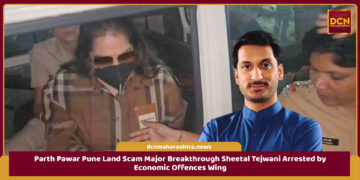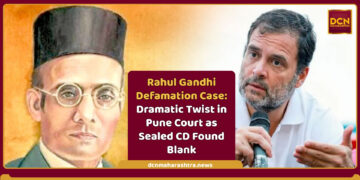Special Correspondent | Pune
In the ongoing Vaishnavi Hagavane suicide case, outrage is growing over the conduct of the defense lawyer representing the accused. During a recent court hearing, the lawyer allegedly made derogatory remarks about Vaishnavi’s character, leading to widespread condemnation. The Maharashtra State Commission for Women has taken serious note of the incident and written to the Bar Council, demanding strict action and the formulation of clear ethical guidelines for advocates handling sensitive cases.
During a hearing held on Wednesday at the Shivajinagar court in Pune, advocate Vipul Dushing, who represents the Hagavane family, argued that the deceased had a personal relationship with another man — a statement perceived by many as an attempt to tarnish her image. This triggered a statewide backlash, with citizens and activists accusing the lawyer of victim-blaming and character assassination.
Reacting swiftly, the State Women’s Commission stated in its letter to the Bar Council Secretary that the advocate’s conduct was in violation of the Advocates Act, 1961, and called for urgent deliberation and regulatory action. The commission also demanded that explicit boundaries be set for advocates while speaking to the media on cases involving deceased women or victims of domestic violence.
“The case of Vaishnavi Hagavane is extremely sensitive, involving allegations of dowry harassment and domestic abuse. In such circumstances, the defense lawyer’s public accusations about her personal life are not only inappropriate but also mentally and emotionally distressing for her family,” the commission noted in the letter.
It further emphasized that:
> “All arguments and evidences should be presented respectfully before the Hon’ble Court, and not through the media. Such irresponsible remarks contribute to the social vilification of the victim, weakening the family’s morale and delaying the justice process.”
The Women’s Commission reiterated the need for legal representatives to exercise discretion and empathy, especially when addressing the media in cases involving gender-based violence. “The society must stand with Vaishnavi and her grieving family. Media-driven character defamation during an ongoing judicial process is utterly unacceptable,” the commission concluded.
The intervention by the Women’s Commission is being seen as a strong reminder to the legal fraternity about the ethical responsibility lawyers hold in upholding the dignity of victims, particularly in cases involving women who can no longer defend themselves.
















